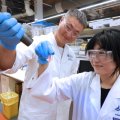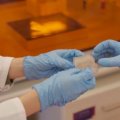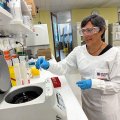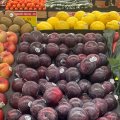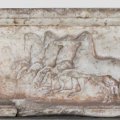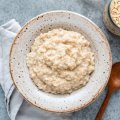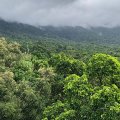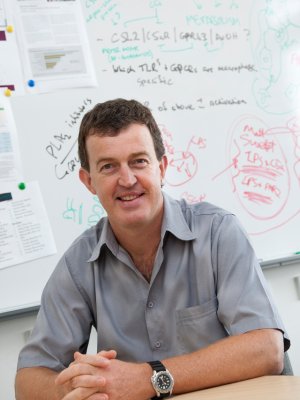
University of Queensland researchers have launched a global search to discover antibiotics capable of combating superbug bacteria that are resistant to current antibiotics.
The Community for Open Antimicrobial Drug Discovery (CO-ADD) is a not-for-profit initiative funded by $3.1 million from the Wellcome Trust, and led by researchers at UQ’s Institute for Molecular Bioscience.
The initiative will invite chemists from around the world to submit their compounds for free screening for antimicrobial activity.
Initiative Director Professor Matthew Cooper said antibiotic resistance cost the Australian economy one billion dollars each year.
“We are heading towards a return to the pre-antibiotic era, when even simple infections caused death,” Professor Cooper said.
“Now it is time to act.”
UQ scientists hope to screen more than 50,000 chemical compounds in the next 18 months, at no cost to the providers of the compounds.
“CO-ADD aims to help researchers around the world find new, diverse compounds to combat the superbug crisis,” Professor Cooper said.
“Each year chemists around the world make millions of compounds, most of these are not designed as antibiotic drugs and would not otherwise be screened for antimicrobial activity.
“The next antibiotic could be out there, sitting on someone’s shelf.”
Professor Cooper discusses COADD from The University of Queensland on Vimeo.
This video is made available for media use. Broadcast quality footage is available on request from 07 3365 1130 or communications@uq.edu.au.
UQ Vice-Chancellor and President Professor Peter Høj said CO-ADD complemented the global campaign to fight antibiotic resistance.
“This support from the Wellcome Trust, the world’s second-largest charity for biomedical research, shows just how important this ground-breaking approach is,” he said.
“Here at UQ, we’re working to find answers to global problems, translating research into practical solutions.”
Health Minister Cameron Dick said that this work being undertaken by the Institute of Molecular Bioscience showed that Queensland could become a centre of international research excellence.
“The whole Smart State agenda set up by previous Labor Governments was always one for the long term, and what we’re seeing now is some of the end results of that concerted push,” he said.
“Queensland needs to diversify its economy, and one of our major strengths is a well-trained and well-educated workforce.
“The institute has been able to attract well-renowned researchers from around the world, and they know that they will have talented people working with them.”
CO-ADD will screen compounds against strains of bacteria and fungi that cause life-threatening infections, with all results made available to the research community.
The UQ-based team will establish the world’s first antimicrobial-focused open access database of chemical compounds to help researchers understand how antibiotics work and what type of compounds to look for.
Chemists can submit their compounds or find out more information online at www.co-add.org.
High-quality photographs and video footage is available for media on request. Contact UQ Communications on 3365 3439 or email communications@uq.edu.au.
Contact: CO-ADD Marketing and Communications Officer Ruth Neale, r.neale1@uq.edu.au, +61 (0) 487 955 790; or IMB Communications, communications@imb.uq.edu.au, +61 7 3346 2155.
.jpg)
